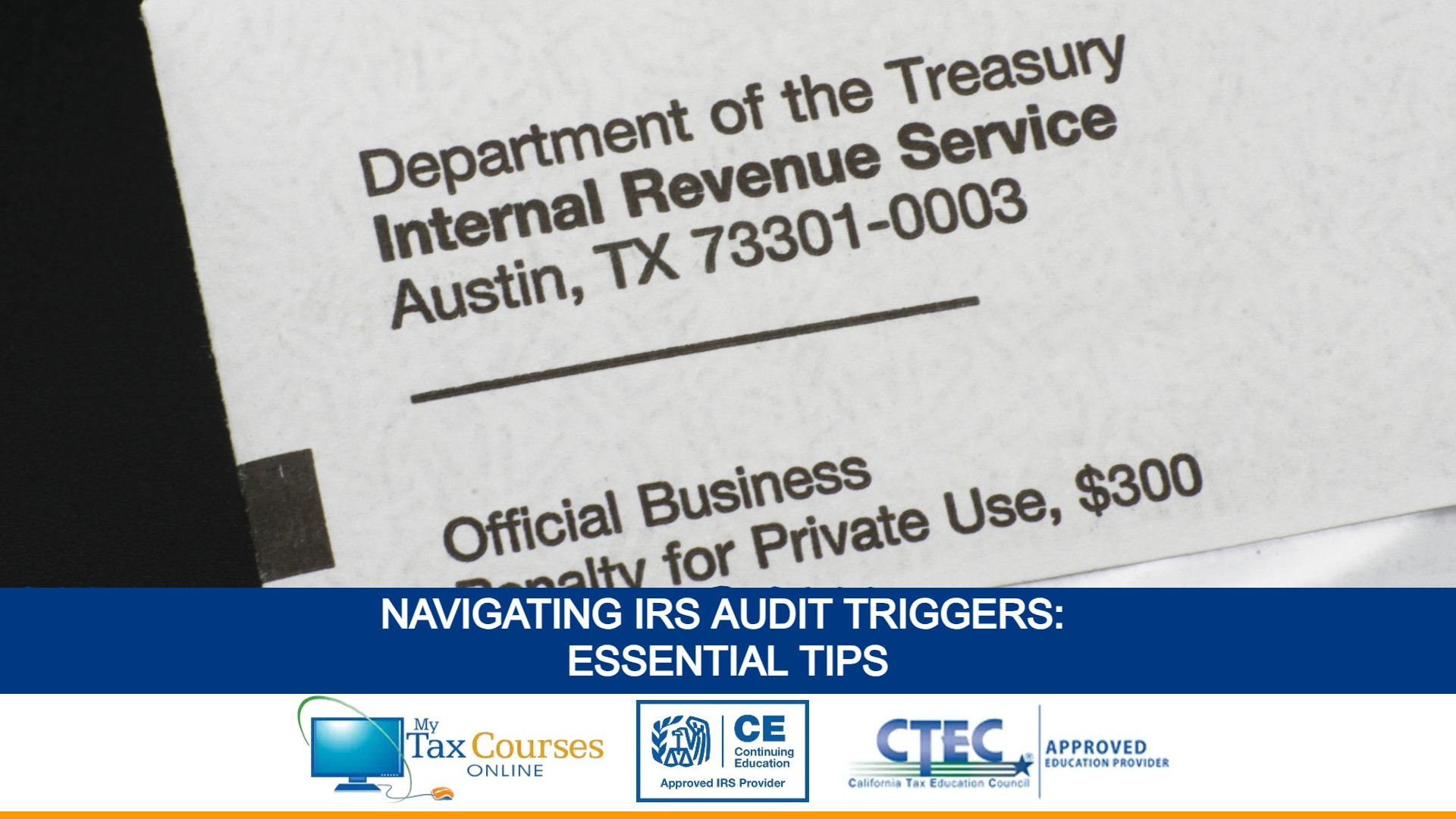As tax preparers, one of your primary goals is to prepare accurate tax returns that minimize the risk of an IRS audit. While an audit doesn't always signify a problem, it can be time-consuming and stressful for both you and your clients. Understanding what triggers an IRS audit and how to navigate these triggers is essential. Here are key tips to help you in this endeavor.
- Report All Income: One of the most common triggers for an IRS audit is the underreporting of income. Ensure all income sources, including wages, interest, dividends, and income from side gigs, are accurately reported. Cross-referencing between reported income and information returns (like Forms W-2 and 1099) is a standard IRS practice.
- Be Mindful of High Incomes: Taxpayers with higher incomes are more likely to be audited. As income increases, so does the complexity of a tax return. For clients in higher income brackets, extra diligence is needed to ensure all income, deductions, and credits are correctly reported and substantiated.
- Understand Deductions and Credits: Large or unusual deductions and credits can raise red flags. Home office deductions, charitable contributions, and business expense deductions should align with industry norms. Ensure your clients have proper documentation and that their deductions are proportionate to their income.
- Accurately Report Self-Employment Income: Self-employed individuals often face more scrutiny. Reporting business expenses that are disproportionate to income or repeatedly declaring business losses can prompt an IRS audit. Maintaining clear and detailed records, including mileage logs and receipts, is crucial for self-employed clients.
- Double-Check Numbers: Simple mathematical errors or mismatches in reporting can draw unwanted attention. Use tax preparation software for accuracy, and always double-check your work.
- Be Careful with Foreign Accounts: Failure to report foreign bank accounts can lead to audits. If your clients have foreign assets, ensure they comply with the Foreign Account Tax Compliance Act (FATCA) and Report of Foreign Bank and Financial Accounts (FBAR) requirements.
Navigating IRS audit triggers requires attention to detail, a thorough understanding of tax laws, and a commitment to accuracy. By following these tips, you can significantly reduce the likelihood of your clients being audited and maintain a strong reputation as a reliable tax preparer.
Beyond the Basics:
- Embrace Continuous Learning: Stay informed about the latest tax regulations and updates through publications, professional organizations, and online resources like My Tax Courses Online.
- Seek Professional Support: When faced with complex situations or doubts, don't hesitate to seek guidance from experienced tax professionals or legal counsel.
- Empower Your Clients: Provide your clients with clear explanations, educate them about potential audit triggers, and encourage them to maintain accurate and organized records.
By proactively addressing potential issues and employing these strategies, you can navigate the complexities of tax preparation with confidence, minimize audit risk for your clients, and build a successful and rewarding career as a tax professional.




